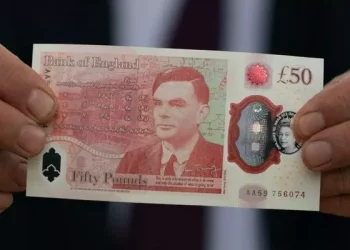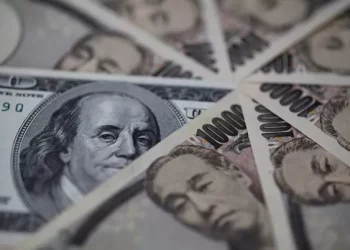In the dynamic landscape of international finance, staying informed about currency exchange rates is crucial for individuals and businesses engaging in global transactions. Among the many currency pairs that are traded daily, the conversion from Indian Rupees (INR) to Central African CFA francs (CFA) holds significance for those involved in economic activities between India and the Central African region. This article aims to provide an in-depth analysis of the current INR exchange rate, focusing on the specific aspect of converting rupees to CFA.
Current Exchange Rate Analysis
The first and foremost concern for anyone looking to convert rupees to CFA is the prevailing exchange rate. As of the latest data available, the current exchange rate stands at 1 INR to 7.22 CFA. This value is determined by the foreign exchange market, where various factors such as economic indicators, geopolitical events, and market sentiment contribute to the fluctuation in currency values. Understanding this baseline is essential for individuals and businesses alike, as it forms the basis for any financial transaction involving the conversion of rupees to CFA.
Factors Influencing Rupees to CFA Exchange Rate
Several factors contribute to the determination of exchange rates, and they play a crucial role in understanding the dynamics of converting rupees to CFA. Economic indicators, such as inflation rates, interest rates, and trade balances, can impact the exchange rate. Additionally, geopolitical stability, government policies, and global economic trends also influence the value of currencies. Keeping a keen eye on these factors helps predict and navigate the fluctuations in the rupees to CFA exchange rate.
Central African Economic Landscape
To gain a comprehensive understanding of the exchange rate, it is imperative to delve into the economic landscape of Central African countries. The CFA franc is used by several Central African nations, and the economic conditions of these countries collectively contribute to the strength or weakness of the currency. Analyzing key economic indicators, such as GDP growth, inflation rates, and trade balances in Central African nations, provides insights into the factors affecting the conversion from rupees to CFA.
Trade Relations Between India and Central African Countries
Examining the trade relations between India and Central African countries sheds light on the demand for rupees and CFA. The volume and nature of trade transactions impact the exchange rate. If there is a significant demand for Indian goods and services in Central Africa, the demand for rupees increases, potentially influencing the exchange rate. Conversely, if Central African exports to India rise, the demand for CFA might see an uptick, affecting the conversion rate.
Historical Trends in Rupees to CFA Exchange Rate
To make informed decisions, it is essential to analyze historical trends in the rupees to CFA exchange rate. Understanding how the exchange rate has behaved in the past during various economic conditions helps anticipate potential future movements. Historical data allows individuals and businesses to identify patterns and make more informed decisions regarding when to convert rupees to CFA.
Impact of Central Bank Policies
Central banks play a pivotal role in shaping the currency market. Monitoring the policies and interventions of the Central Bank of Central African States (BEAC) provides valuable insights into the future direction of the CFA franc. Central bank decisions regarding interest rates, monetary supply, and currency interventions directly impact the exchange rate. For those looking to convert rupees to CFA, staying informed about BEAC’s policies is crucial for strategic decision-making.
Currency Converter Tools and Apps
In today’s digital age, accessing real-time exchange rates has become easier than ever. Numerous currency converter tools and mobile apps provide up-to-the-minute information on the rupees to CFA exchange rate. Utilizing these tools empowers individuals and businesses to make instant decisions based on the latest market data, ensuring optimal value when converting currencies.
See Also: Understanding the Factors Behind the Weakening Indian Rupee
Risk Management Strategies for Rupees to CFA Conversion
Given the inherent volatility in currency markets, implementing effective risk management strategies is paramount. Forward contracts, options, and other hedging instruments can help mitigate the risks associated with converting rupees to CFA. These financial tools provide a level of certainty in an otherwise unpredictable market, offering protection against adverse exchange rate movements.
Expert Opinions on Rupees to CFA Exchange Rate
Gaining insights from financial experts and analysts can provide a broader perspective on the rupees to CFA exchange rate. Regularly following market commentaries, economic forecasts, and expert analyses helps individuals and businesses make well-informed decisions. Additionally, attending conferences and webinars on international finance can offer valuable opportunities to interact with experts and gain deeper insights into currency market dynamics.
Tips for Individuals and Businesses Converting Rupees to CFA
For individuals and businesses engaged in cross-border transactions, optimizing the conversion process is essential. Timing, understanding market conditions, and being aware of transaction costs are crucial aspects. Additionally, maintaining awareness of economic and geopolitical developments that might impact the rupees to CFA exchange rate is vital for making strategic and informed decisions.
Conclusion
In conclusion, the conversion from rupees to CFA is a multifaceted process influenced by various economic, geopolitical, and market factors. Staying informed about the current exchange rate, understanding the economic landscapes of India and Central African countries, and implementing effective risk management strategies are key elements for those involved in transactions involving these currencies. By staying abreast of market developments and leveraging available tools and expert opinions, individuals and businesses can navigate the currency exchange landscape with confidence, ensuring optimal outcomes when converting rupees to CFA.
Related Topics:
Current INR Exchange Rate: Indian Rupee vs Canadian Dollar
Current INR Exchange Rate: Indian Rupees to Australian Dollars
Current INR Exchange Rate – Indian Rupee to Nepalese Rupee
























